Thank You
Your Report Is On Its Way
LET’S TALK
Free Training and Development Consultation
WHAT OUR ATTENDEES SAY
Testimonials
10 Fundamentals of 360 Recruiting
Below are what we believe to be the 10 Fundamentals of Successful 360 Recruiting, which is the foundation upon which our training is built.
Read More
The 10 Fundamentals of 360 Recruiting
Building Relationships
Full-desk recruiting is a long-term process. It starts by building relationships. Building your contact list both online and offline means investing the time to network and nurture these relationships.
For candidates, LinkedIn is a great resource to get started. Searching by specific job titles and industries can help you find regional candidates. An engaging invitation on LinkedIn can interest the people you’re really trying to reach: those who aren’t active job seekers but have the skills you need. Another good source is Facebook groups which you can target by industry. An advantage you have over in-house recruiters is that candidates can reach out to you privately without jeopardizing their current positions.
For company solicitations, industry events and business conferences can help to make a personal connection. Offer to make presentations at conferences and events to establish yourself as an expert. While you will show your skills and share your expertise, this should not be a sales pitch. Provide valuable information that the audience can use. It’s okay to dangle an offer at the end, such as a free evaluation or analysis.
Contributing articles to industry websites with your byline (and your company name) can help establish your credibility. It demonstrates your expertise and it also showcases your thought leadership when people do an online search for you and your business.
Referrals Are Gold
Whether you’re hunting for companies or candidates, your best source is referrals. If you have placed a candidate or filled a job, always ask for a referral. This endorsement can open doors you might never be able to get through otherwise. If possible, see if they are willing to make a call or email introduction to start the conversation. It’s easy for people to say no to your inquiry, but hard for them to ignore a colleague.
Target Specific Categories Of Business
When you’re targeting employers, it’s helpful to focus on categories of business. Start by searching category industry listings to get a sense of the jobs companies are trying to fill. Taking a look at job sites in specific industries can show you the jobs similar companies are trying to fill. If you see a lot of listings for a specific job, you can bet most companies are always on the lookout for talent in these areas. This helps when you make the initial contact.
Focus on specific industries at times. The more calls you make in a niche, the better you will understand that industry. You’ll start to hear the same concerns and issues. This helps you find the pain point that you can solve. This goes for employers and job candidates as well.
No More Cold Calls
With the ease of getting information online, you should never have to make a cold call again. Doing a Google search, looking at a company’s website, public filings, or financial statements, can give you the relevant business context that justifies the call for the for personnel requirements. This will better prepare you to have a VBR (Valid Business Reason) for making a call.
Just a tiny bit of research can turn a cold call into a warm one. Calling and saying you have a pool of candidates for that exact opening they have listed will get their attention more than just a standard solicitation.
Keep Them Warm
Once you identify a hot prospect, make sure you have regular touches. Whether it’s calling one more time, drip-feeding industry information or job-specific information, you need to make sure you remain top-of-mind for when they are in the decision-making phase.
Don’t Sweat The No
No matter how good you are, you are going to hear a lot of “no thanks” from both businesses and candidates. If you can’t handle the rejection, being a full-deck recruiter is going to be tough going.
Set Daily Goals
Email marketing campaigns can be efficient, but only if highly targeted and personalized. The average person deletes nearly half of all emails they get each day and they do that in less than 5 minutes. Anything that sounds or looks like a generic solicitation for job candidates or employers will hit the trash can before being opened.
Be careful how much you write. After all, the job of an email is to evoke interest and get them to engage. Your instinct may be to tell them a lot about what you can do, but research shows the more you write, the less likely you are to get a response. A 2,000-word email is actually less effective than a 25-word email. Emails of roughly one paragraph (50-125) do the best. If you can’t get their attention in a couple of sentences, they probably are hitting that delete button anyway.
Email Can Work (But Only If You Do It Right)
When you do get a no, take a breath, then jump right back in. If you’re using the phone, don’t put the receiver back on the hook. It’s too easy to take a break. Keep it in your hand and dial the next number on your list. After all, every call you make gets you closer to a yes. No matter how busy you are, set aside time to prospect candidates and businesses every day. There is a direct relationship between the number of opportunities in your pipeline and the number of deals you close.
Your recruitment strategy needs to be disciplined. This means setting goals as well as regular recruitment training and coaching.
When You Get An Inquiry, Respond Quickly
When they reach out to you, that’s a hot lead. Don’t let it cool off. A Harvard Business Review study showed that 47% of companies contacted didn’t respond for 24 hours or never responded at all! Call back within an hour and your closing rates will increase. The study showed that companies calling within 60 minutes were 7 times more likely to have a meaningful conversation with a decision-maker.
Always Ask For Two Things
No matter what you do, when you get an employer or candidate on the phone always do these two things:
- Ask for the Business
- Ask for Referrals
You have already invested the time in hunting them down and getting them on the phone. Asking for the business will help you gauge where they are in the decision process. That’s important information for you to know as it helps you qualify prospects and importance. Even if they have no interest, asking them if they know anybody else that could use your service might yield a lead that comes with an implied endorsement.
A solid recruitment strategy, including recruitment training, coaching, and goal setting, can yield strong results.


